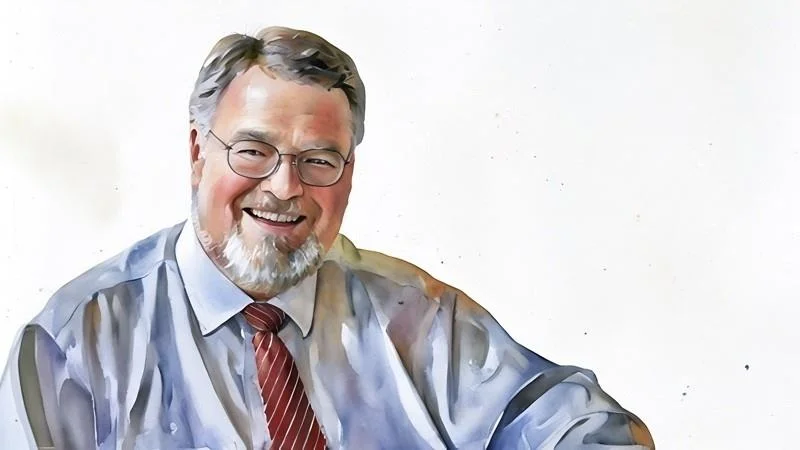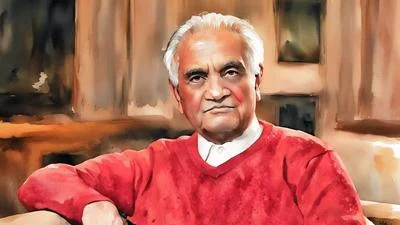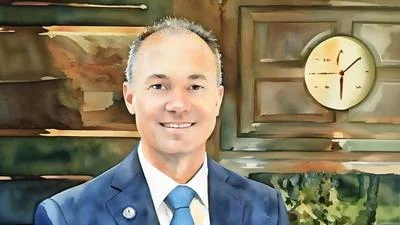For decades, U.S. policy toward China relied on the hope that economic integration would liberalize the nation. Business and political leaders assumed that by expanding trade and investing heavily in China, democratic expansion and greater personal freedoms would follow. But the Chinese Communist Party (CCP) is threatening its neighbors and increasing its authoritarianism, including through technology and ramped-up surveillance. Investor and technologist Rod Martin argues it’s time for a reset.
As a member of the PayPal pre-IPO team and founder of Martin Capital, Martin draws on his experiences in tech and policy to advocate for strategic decoupling, reciprocal trade, and the defense of liberty in the face of a rising authoritarian superpower.
“Technology is liberating, but it can be used against us,” Martin says. “We were moving rapidly into a very soft totalitarianism. If Elon Musk had not purchased Twitter exactly when he did, I’m not sure we could have had anything you would recognize as a free election in 2024.” He warns that without vigilance, even the most revolutionary innovations can be hijacked by centralized power.
Martin views China as a “mortal enemy.” He criticizes U.S. policy dating back to the Clinton administration, which he says “just gave them the store and built a superpower in a country that clearly is opposed to everything we stand for.” He praises President Trump for reversing course. “He’s decoupling in part so that we can bring pharmaceuticals home and other things like rare earths that we really have to do here.”
Underlying Martin’s perspective is a concern with China’s internal fragility. “China is an export-driven economy,” when, he says, “most of our foreign trading partners can’t sustain a long-term trade war with their chief buyer.” As a result, China is becoming more dependent on exports, “and so the danger in this next decade especially is very real.”
He cites demographic decline, an apparently broken real estate market, and other mounting internal pressures. “They’ve [reduced] their population by about 100 million right now, and 100% of that is in the working age cohort.”
Martin believes China’s rulers are not invincible. “They just agreed to Donald Trump’s trade deal,” which places high tariffs on Chinese goods entering the U.S. compared to 10% on U.S. goods going into China. “That’s just a surrender,” Martin says, “and they’re bowing to reality.”
For Martin, trade and national security are inseparable, including in the eyes of our adversaries. “They are going to view [the economy] as a battlespace, not a marketplace, and they are going to use capitalism against itself wherever they can.” He warns against a return to 1970s-style industrial policy but insists the U.S. must use economic leverage to defend freedom.
“Reciprocity has to be the standard,” he says. Pointing out that “Germany charges us four times the tariff on our automobiles that we charge them,” Martin describes this as “absurd.” He asks, “Why would you ever allow that?”
He supports tariffs to “bring about a more level playing field” and believes they can be used as a national security tool. “We can use our disproportionate economic power to build a military sufficiently strong that… we make the steel more expensive than it’s worth, and they don’t go to war,” he says, paraphrasing Cold War strategist Morgan Blackwell. “And likewise, we can use trade to facilitate better behavior.”
Martin’s perspective is not simply transactional. His argument is rooted in a Western view of human dignity and moral clarity. “We believe that man is made in the image of God and therefore has dignity that the state may not infringe,” he says. “We don’t want to impose it on them, we just want to help them find it.”
He acknowledges the missionary impulse that once accompanied American engagement with China and mourns its marginalization under the CCP. “The missionary endeavor in China was shockingly successful for about a century,” he says. That’s why in Martin’s view, “one of the first things the communists did was get rid of all the missionaries.”
Among specific policies, Martin says, “no free trade without free speech,” echoing Vice President Vance. “That was aimed at our European allies, but it applies to China too,” according to Martin. “America’s influence can be very positive while doing deals that make sense and increase everybody’s wealth,” he says. “I don’t know how you could have a better outcome than that, and I think it ultimately averts maybe not all war, but most war.”









